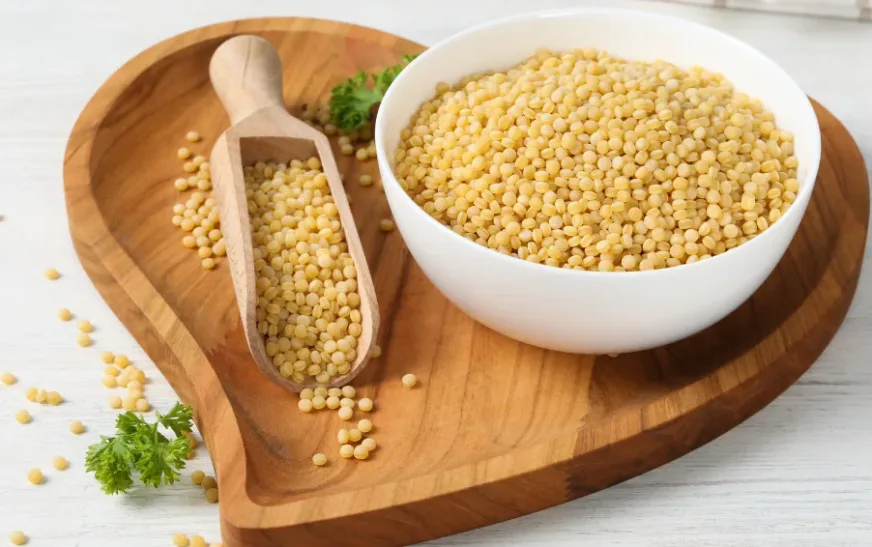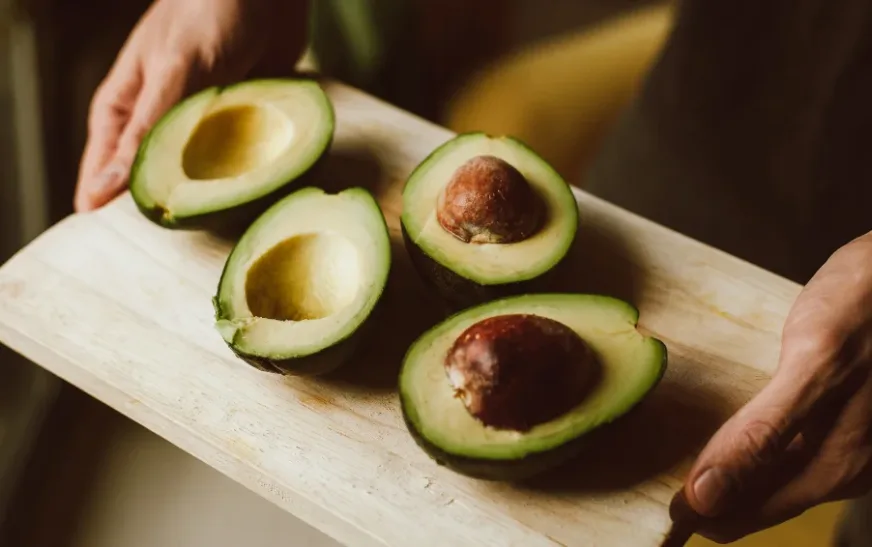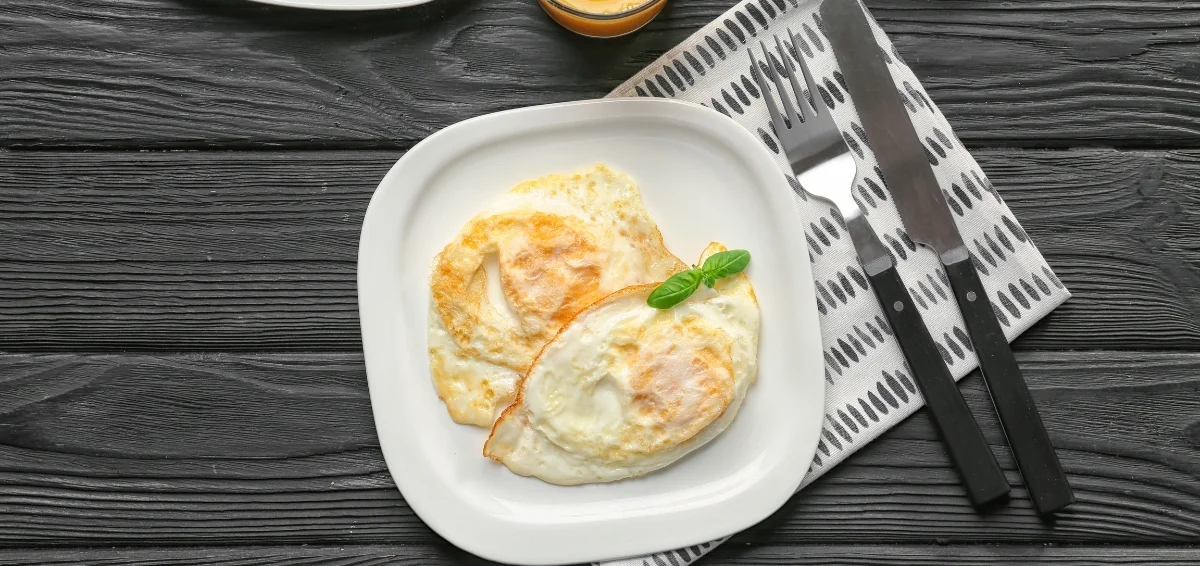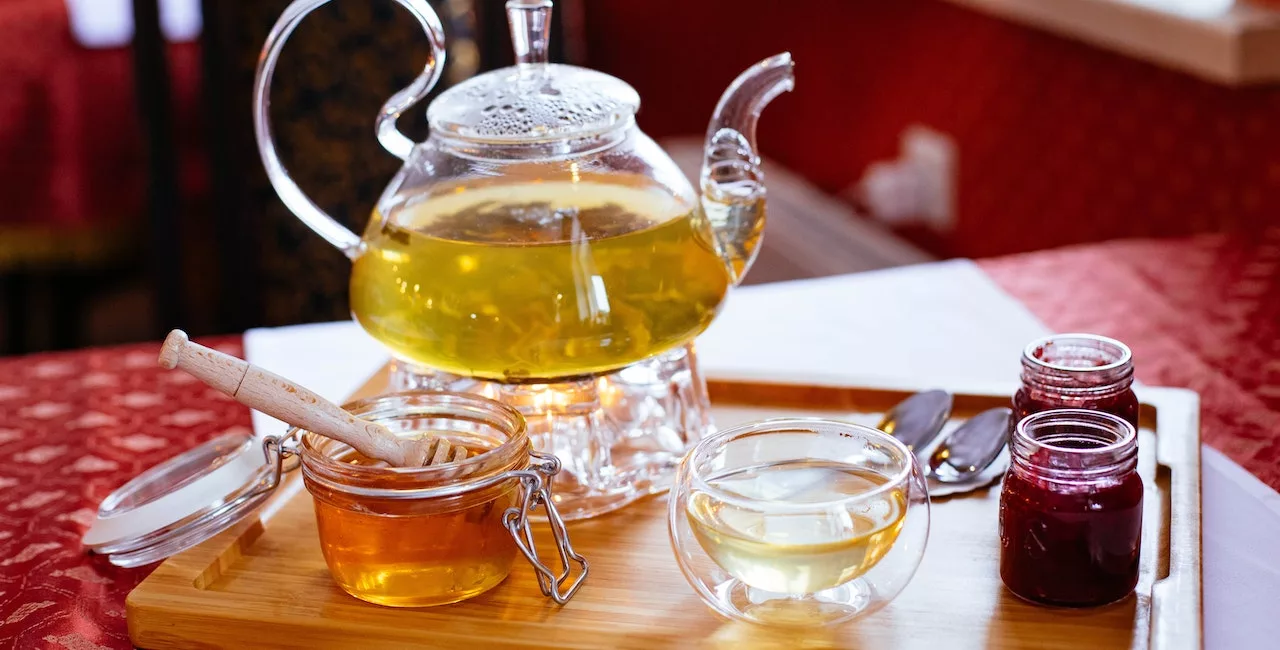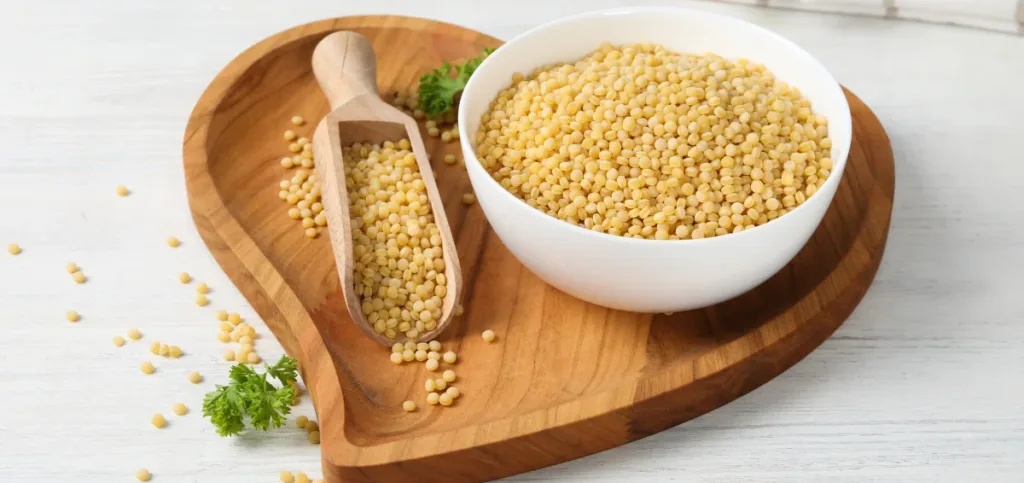
If you enjoy exploring different grains and side dishes, chances are, you’ve heard of couscous. This small, bead-like food is commonly thought to be a grain, but it’s actually produced from semolina wheat. It’s light, airy, and easily prepared, which is why it’s a staple in many kitchens around the globe. But aside from the flavor and texture, couscous also has a lot to offer in the way of nutrition.
In this article, you will learn what couscous is. You will get to know about its benefits and a number of other things. By the end, you’ll understand why this versatile dish deserves a spot in your regular meal rotation.
What is Couscous?
Couscous is a staple food in North African cuisine. It is pretty popular in Morocco, Algeria, and Tunisia. Traditionally, it’s made from crushed durum wheat semolina that is rolled into tiny granules and steamed. This process gives it a light and fluffy texture. It pairs well with a variety of dishes, whether you are making savory stews or fresh salads.
While many think it is a grain, couscous is a type of pasta, technically. Its quick cooking time makes it perfect for busy weeknights or large gatherings. In just a few minutes, it can absorb flavors from spices, broths, vegetables, etc., and turn into a delicious, filling meal base.
There are three main types of couscous:
- Moroccan couscous: It is the smallest and quickest to cook.
- Israeli (pearl) couscous: It is larger and comes with a chewy texture.
- Lebanese couscous: This type is the largest and most rich in flavor.
Each variety offers a different texture, but they all share similar nutritional benefits.
The Nutritional Profile of Couscous
Before you go through its health benefits, it’s worth knowing what couscous contains. Typically, a single cup of cooked couscous offers:
- Around 176 calories
- 6 grams of protein
- 36 grams of carbohydrates
- 2 grams of fiber
- Minimal fat content
Also, it is an excellent source of selenium. Besides this, it provides small amounts of B vitamins, manganese, and magnesium.
Top 5 Health Benefits of Couscous
1. Rich in Plant-Based Protein
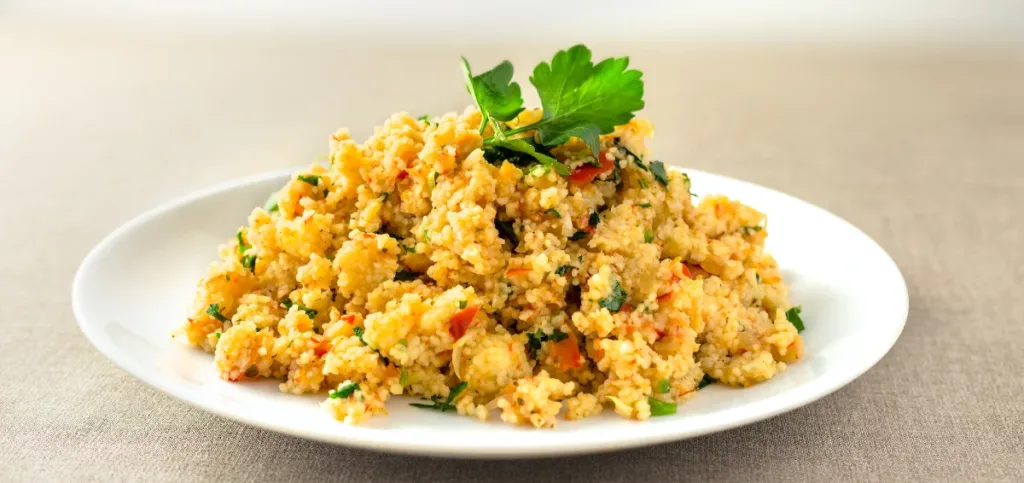
Protein is a crucial nutrient for:
- Muscle repair
- Hormone production
- Overall body function
Couscous isn’t a complete protein on its own. However, you can get 6 grams of protein from one cup. This makes it a good plant-based source for vegetarians or those reducing meat intake. When paired with beans, lentils, or dairy, it creates a complete amino acid profile.
You can add couscous to your diet to help support an active lifestyle and aid post-workout recovery. Plus, it keeps you fuller for longer. It’s an easy way to increase protein intake without adding heavy meats.
Read Also: High Protein Vegetarian Meals
2. High in Selenium
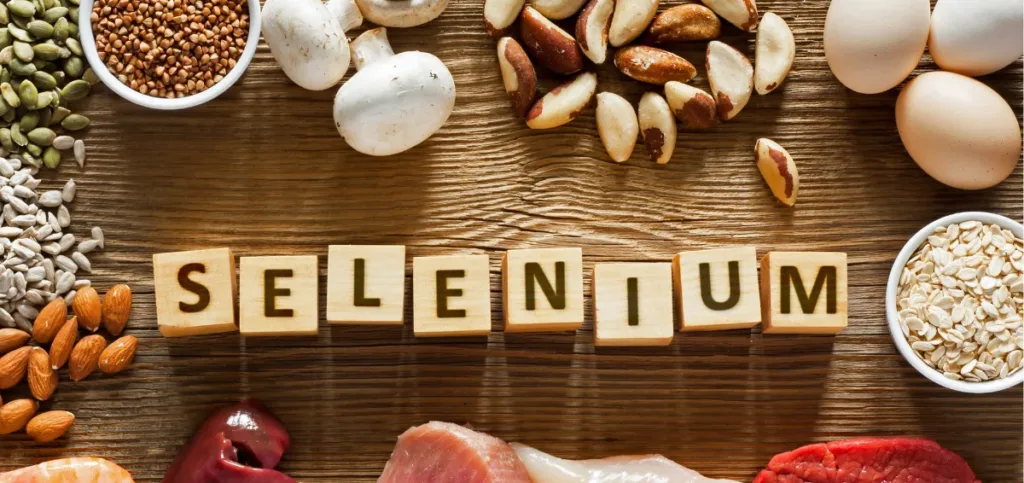
Couscous is a rich source of selenium. It is an important mineral with solid antioxidant properties. Selenium helps protect cells from free radical damage and boosts immune function. In fact, it supports thyroid health.
Just one cup of cooked couscous provides over 60% of your daily requirement, making it one of the best dietary sources available. Adequate selenium intake is linked to:
- Lower inflammation
- Improved heart health
- Better cognitive function
Since many people don’t get enough selenium, couscous offers a simple, tasty way to fill that nutritional gap.
3. Supports Digestive Health

Fibre is critical to maintaining a healthy digestive system. Couscous offers a moderate amount, especially when you combine it with vegetables or legumes. Fibre adds bulk to stool and promotes regular bowel movements. On top of this, it supports beneficial gut bacteria. A fibre-rich diet can help reduce the risk of digestive problems, such as:
- Constipation
- Diverticulitis
- Colon cancer, etc.
Eating couscous as part of a balanced meal, such as in salads or vegetable stews, can improve digestion while keeping you full longer. This makes it a wise choice for both gut health and weight control.
4. Low in Fat and Versatile in Meals
Couscous is an ideal option for people who are watching their calorie and fat intake. It is low in fat naturally. Also, it allows you to create flavorful, satisfying meals without adding excess oil or butter. Its mild, neutral flavor means it pairs with:
- Bold seasonings
- Fresh herbs
- Nutrient-rich vegetables, etc.
You can enjoy couscous in many ways without sacrificing health goals. Also, it is simple to substitute it into dishes where you would use rice or pasta normally. Thus, you get to experience a variety with meals remaining light and heart-healthy.
5. Quick and Easy to Prepare
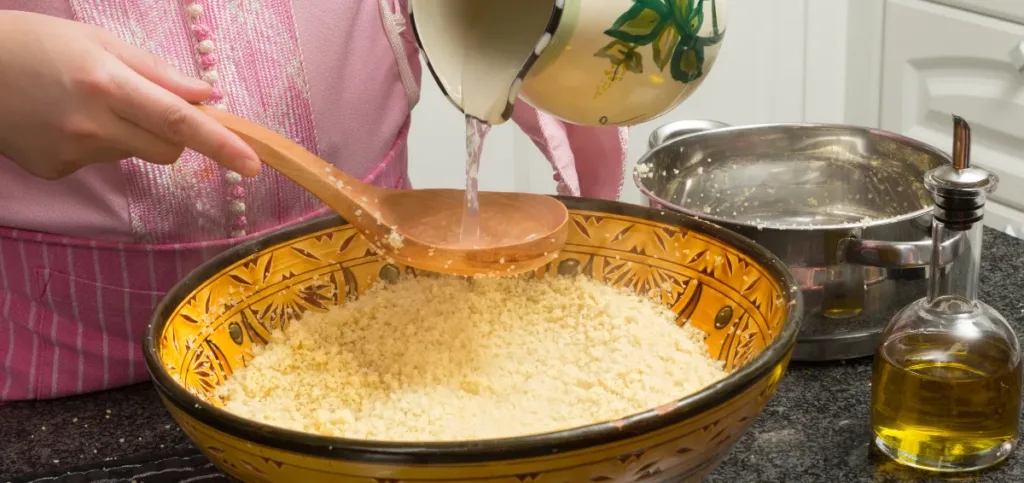
In a busy lifestyle, convenience matters just as much as nutrition. You can cook it in just 5 minutes. This is much faster than most grains. So, it’s perfect for weeknight dinners or last-minute lunches.
Simply pour boiling water or broth over it, cover, and let it steam. It’s ready to serve with minimal effort and no special equipment. This speed doesn’t come at the cost of versatility. Couscous works in several ways:
- Salads
- Sides
- Main dishes, etc.
Its quick preparation makes sure that you can enjoy healthy and homemade meals anytime you want.
How to Cook Couscous Perfectly
Cooking couscous is simple. Here are a few tips that can make it taste even better.
Step-By-Step Method:
- Boil water or broth (use a 1:1 ratio for Moroccan couscous).
- Remove from heat and stir in couscous.
- Cover and let it sit for 5 minutes.
- Fluff with a fork before serving.
You can sauté onions, garlic, or spices in a little olive oil and add them for some extra flavor. Also, you can mix in herbs, roasted vegetables, nuts, etc., for added texture and nutrition.
Read Also: Low-Carb Snacks
Couscous vs. Other Grains
It’s easy to compare couscous to rice or quinoa, but each has its own benefits.
- Couscous: It is quite quick to prepare. Plus, it is low in fat and mild in flavor.
- Rice: It is naturally gluten-free. You can use it in several dishes. However, remember that it is higher in calories.
- Quinoa: This is rich in complete protein and fiber, but takes longer to cook.
While couscous isn’t gluten-free (because it’s made from wheat), it is still a solid choice for many people, especially when you need a fast, healthy meal base.
Is Couscous Good for Everyone?
Couscous can be a part of the diet for most people. But because it’s wheat, it’s not recommended for individuals with celiac disease or gluten intolerance. In this case, gluten-free cereals such as quinoa, millet, or rice can prove to be good options.
For people without gluten issues, couscous can be consumed daily.
Creative Ways to Enjoy Couscous
Here are some ways to try couscous and enjoy delicious meals with your loved ones.
- Mediterranean Salad: You can toss couscous with cucumber, tomatoes, olives, feta, etc.
- Spiced Vegetable Couscous: Create a vegetable mix by adding roasted carrots, zucchini, bell peppers, etc, to it. Also, you can season it with some Moroccan spices.
- Couscous Breakfast Bowl: You can mix it with fruits, nuts, honey, etc., to enjoy a healthy breakfast quickly.
- Couscous Soup: You can add it to vegetable or chicken soup to enjoy some extra texture.
The Bottom Line
Couscous is much more than just a side dish. It is nutritious and versatile. Plus, it is pretty easy to prepare. You have to understand what couscous is properly to appreciate its role in both traditional cuisines and modern healthy eating.
Couscous has a number of benefits that make it worth adding to your diet. It is a rich source of selenium and supports digestion. Also, it offers plant-based protein. Besides this, you can cook it in no time, and it mixes well with other elements. Therefore, it is the ideal option for anyone who wants to eat healthier without dedicating hours of their time to the kitchen.
So, the next time you find yourself pondering what to prepare, try cooking couscous for its simplicity, health value, and taste.

